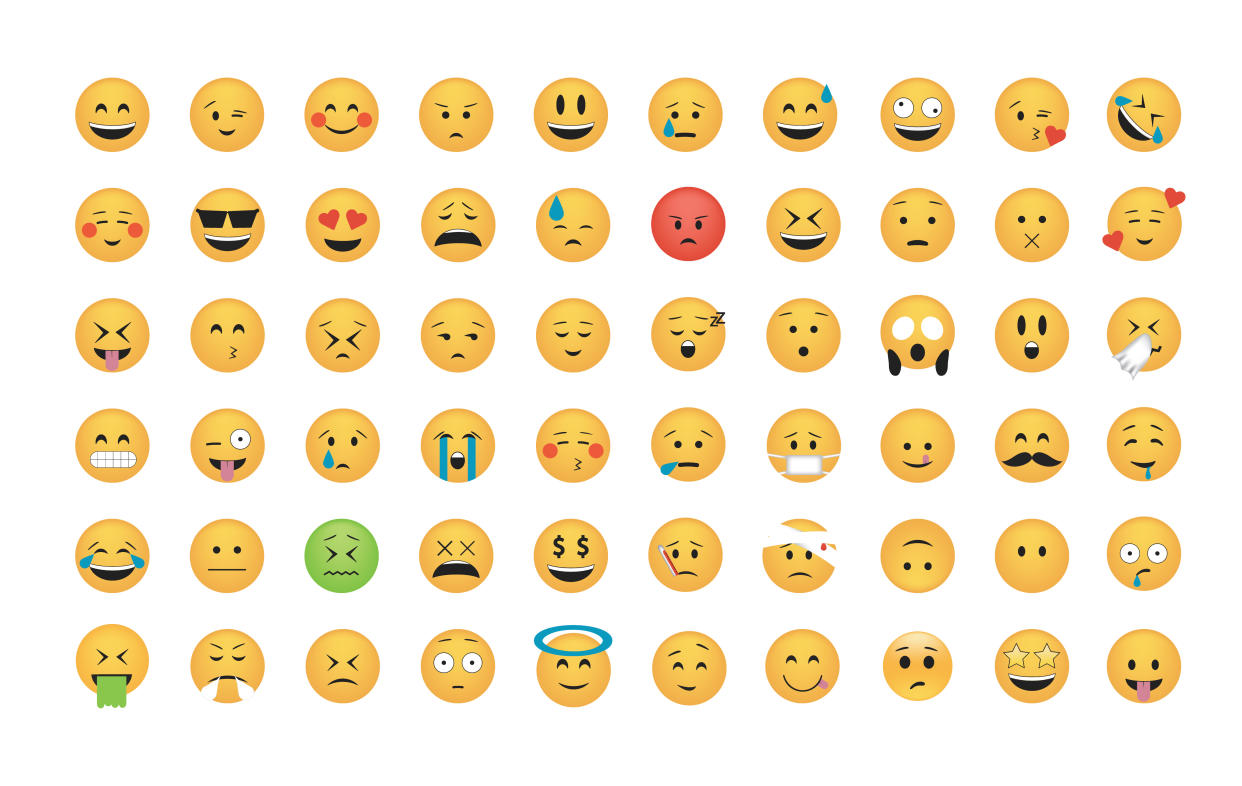Emojis speak louder than words for one in five adults, poll shows

One in five adults say they often use emojis, memes and Gifs to convey how they feel rather than words, according to a poll.
In a survey of 1,000 people aged 16 and over, smiley faces, love hearts, thumbs up and other cartoon icons were found to be an increasingly popular method of communication.
Previous studies showed that teenagers are the worst offenders regarding the decline in grammar and punctuation, which experts say is limiting our vocabulary.
But the survey, commissioned by Guide Dogs UK, suggests that adults have also adopted the cultural trend synonymous with the younger generation.
READ MORE FROM YAHOO NEWS
Here's what your favourite emojis looked like 10 years ago
The 17 Hidden Emoji Secrets You Never Noticed
World Emoji Day quiz: Can you work out these sports related emojis?
The survey found that 22 per cent say they often use emoticons rather than words and around one in eight (13 per cent) say they prefer using these to using words when they are online or using social media platforms.
While face-to-face conversations were still the most common form of communication (59 per cent), text messaging comes a close second (57 per cent).
More than one in five of those polled agreed that increased use of abbreviations has limited their English vocabulary.

Just under a fifth (19 per cent) said increased use of emojis is a factor in limiting vocabulary, while the same proportion (19 per cent) cited not reading as much after finishing formal education.
In addition, 15 per cent agreed that increased use of social media tools contributes to limiting vocabulary.
Guide Dogs commissioned the survey as part of its “powers of description” campaign, which urges the public to think about the significance of descriptive language skills, and the importance of language and words for those with sight loss.
According to the Organisation for Economic Co-operation and Development (OECD) grandparents in Britain outperform their grandchildren in basic skills, including literacy.
Chris McGovern, a former Government adviser said: “Around a third of 11 year-olds have just failed to reach the so-called ‘floor standard’ in their SATs.”
“Employers are forever complaining that at least 20 per cent of school leavers are illiterate and, therefore, unemployable.”

